
“We started out with a clear intention
ghûllzaraën
to pay homage to Necromantia”
After nearly a decade since their first demonic utterances, Necromantic Worship have emerged triumphantly from the shadows with their long-awaited self-titled debut album, unleashed through the occult forges of New Era Productions and Nuclear War Now! Productions. This is a work steeped in ritualistic intensity and Hellenic mysticism, where the bass guitar serves as a thunderous backbone, guiding the listener through a labyrinth of incantatory melodies and sinister atmospheres. Across eight compositions — including a haunting reimagining of Tiamat’s Malicious Paradise — the band affirms its place as a torchbearer of the ancient spirit of Greek black metal. With such a momentous return, the candles are lit, the chalices filled, and the stage set for a conversation with Ghüllzaraën, the visionary voice and mind behind this necromantic rite.
Your long-awaited album has finally been released, taking many back to their youth and to the glory days of the Greek scene in the early ’90s. How has the response to the album been so far, and does it meet your expectations?
The album has been hailed by many with great enthusiasm. Some people even go as far as saying it’s the best album of the year, which of course is flattering. Reactions to the promo tape where already very good so we didn’t expect anything less from the album.
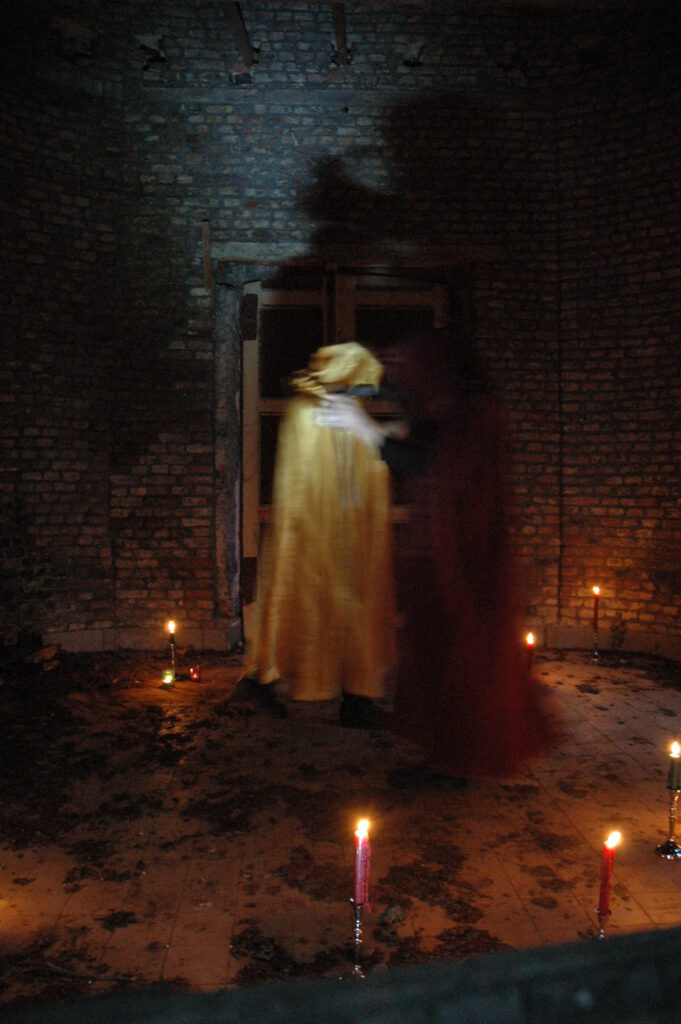
Just like bands such as Necromantia, the bass guitar takes the lead role while the guitar has been pushed to the background. Was this a conscious decision?
Yes, this is not a thing which happens by chance. We started out with a clear intention to pay homage to Necromantia in this way. As we’ve told before we didn’t start out with the intention to actually start a band, we just wanted to make music for the sake of expressing our passion for this type of Black Metal which evolved into this band.
The album also features a Tiamat cover. To what extent has this band influenced you, and which other old school bands have helped shape your sound?
Xarangorth in particular is a big fan of early Tiamat. It was he who came with the suggestion to do a cover of “Malicious Paradise. I myself was quite late to discover the “Sumerian Cry” album to be honest. I think I was 28 when I first heard it. I did like “The astral sleep” but for some reason never checked out Tiamat’s debut. It’s a beast of an album, though I can’t say it has been a huge influence in a conscious way.
I think our influences are quite apparent: Necromantia, Varathron, Mortuary Drape, Beherit, some say Demoncy, a bit of Masters Hammer maybe? Another huge influence is the first album of Equimanthorn, a ritualistic project of Absu members. That album really blew our minds when we heard it back in the days. Such an occult masterpiece!
Then there is Minas Morgul, a very obscure project by Aro of the Polish dark folk band Perunwit. The Music of Minas Morgul has a very weird atmosphere that I really love.
A cool detail is that Chandraphutra (who lives from Poland) has actually released this tape back in the 90ies on No Trend Productions. This detail is the reason he got in touch with us a few years ago. It’s a fascinating case of synchronicity!
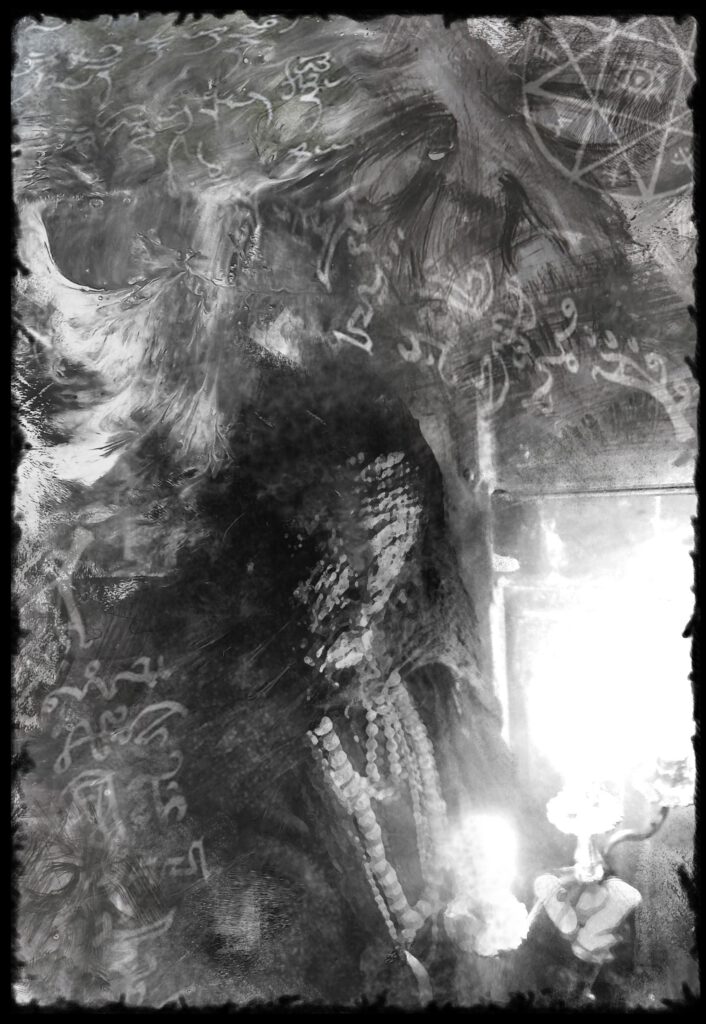
Before the album, there was a promo tape from which two tracks didn’t make it onto the final record. Was this a deliberate choice, or did they no longer fit within the album as a whole?
Yes this was deliberate. We didn’t want to give away too much of the album beforehand so we only took two tracks from the debut. Now in the old days fans could get a promo tape for like five dollars, nowadays the price is around twelve dollars (due to rising production expenses) plus shipping.
It didn’t feel right to charge that kind of money for a cassette with only two songs. Thus we decided to record two exclusive tracks for the promo tape.
You are somewhat of an oddity within the Dutch scene. Do you feel like you are part of this scene, and what is your view on what’s currently happening in the Dutch black metal landscape?
Are we? How so? We have some close friends in the underground. These are mostly people we already knew years before the birth of NW. We are not in contact with a lot of people in the scene nor do we put much effort into keeping up with new releases or bands. So we have no real clue as to what’s going on in the Dutch Black Metal landscape. One of the few more recent albums from the Dutch scene that made an impression is “Zwartmagische brouwels” by Udegste. It’s the Dutch answer to Gehenna’s “First spell”.
Apart from that, I’m looking forward to hearing the new Possession album (not Dutch but fuck it…) and future material of Inverted Pentagram, that’s about it. Xarangorth is a fucking hermit. I even hardly ever see him. He’s either traveling or hiking somewhere. He’s not a people person to put it lightly.
The primary influence on your lyrics seems to be H.P. Lovecraft — so much so that you even picked up the pen yourself to write a story included as a booklet with the Die Hard LP version of the demos compilation. How did that project come about, and are there more stories planned for the future?
I wanted to do something more than just a sticker and a patch. I came up with the idea to do the short story. I had tried my hand at short stories before but never in the horror style of Lovecraft.
I thought it would be a great way for fans to dive even deeper into the occult atmosphere. It was a lot of work but the result turned out great. Some say the hardest thing about writing a story is to actually sit down and write. For me this is definitely the case. So will there ever be more stories? Never say never…but I don’t see it happening anytime soon.
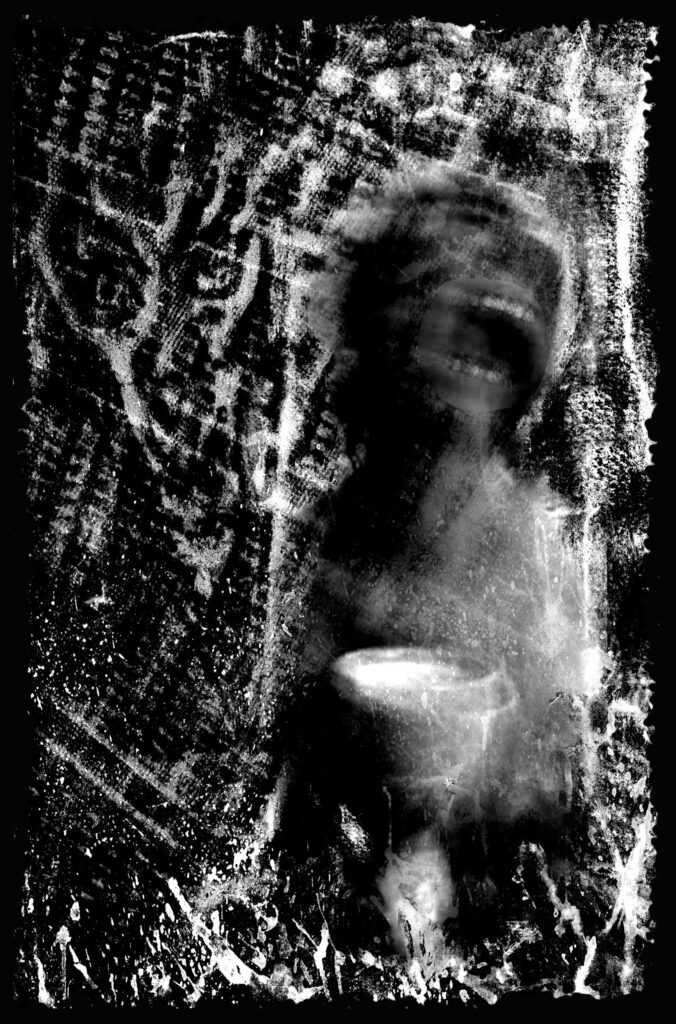
The atmosphere in your recordings is thick with arcane energy. How important is production in achieving that mood, and do you prefer analog recording techniques?
The production process to me is like painting with sound. Especially when it comes to parts like the intro of “Into the haunted crypt”. All the layering of voices, panning them out, adding effects, it’s a magical process in which you truly build a world of its own.
That being said we are not audiophiles that have a great passion for the technical side of things. We are blessed with comrades such as Herjann who assists us in these things. We are simple plug and play musicians who don’t really give a toss what pedal we use for this or that. Nor do we have a preference for analog techniques.
Do you see your music as a ritual in itself, or more as an evocation of something ancient?
Everything in this three dimensional realm has its roots in higher dimensions. Nothing causal is to be found here. Necromantic Worship is an avatar, one of the many faces of a force too great to even imagine. We are but instruments ourselves channelling the magick which pours forth from it.
Your logo, artwork, and even your cassette layouts reflect an era when presentation was part of the magic. How do you approach the visual side of the band?
I’m a very visually oriented and creative person so it comes very easy to me. I think the visual aspect is just as important as the music side of it. Most important is that arcane energy you mentioned earlier. The physical release must look and feel like holding a grimoire in your hands.
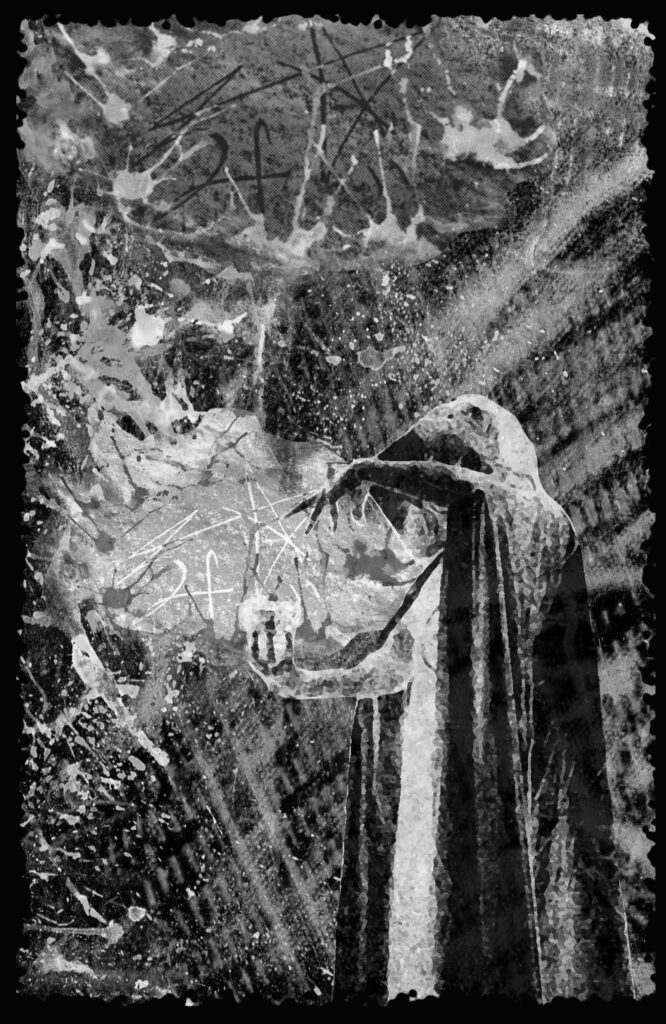
Is there a guiding symbolism or archetype behind the name “Necromantic Worship”?
As I said we initially never intended to start a band. It all started as pure Necromantia worship, nothing more. The band name is a reference to this.
In an era of digital overexposure, you’ve stayed deep underground. Is anonymity and scarcity a deliberate part of your philosophy?
You put your finger right on the sore spot; digital overexposure. Mystery has always been such a huge part of Black Metal. Remember back in the days when you got some poorly xeroxed flyer with just a very dark photo of some ominous figure or maybe just some symbols, a band logo and a few words to describe the music. And for some reason you felt drawn to it and deep in your gut you knew this was without a doubt something you HAD to hear. That time is gone. A few clicks online and you know just about everything there is to know about any band. You have access to their complete discography within seconds. The magic of mystery has gone. Alas. Stubbornly we try to preserve what remains…
Do you feel any kinship with contemporary bands, or do you see Necromantic Worship as existing entirely outside of any scene?
We consider ourselves a Black Metal band and part of that scene. But we don’t really keep track of new releases. Most of them aren’t interesting. The amount of uninspired shit being pressed on vinyl nowadays is disgusting. It is seldom I get to hear something new which does anything for me.
What’s your typical writing process? Do riffs come first, or is the lyrical/spiritual vision the foundation?
There is no typical writing process. The energy comes when it comes. Sometimes through melody, sometimes through words and sometimes just as a feeling or an image which lingers until the transmutation takes place…
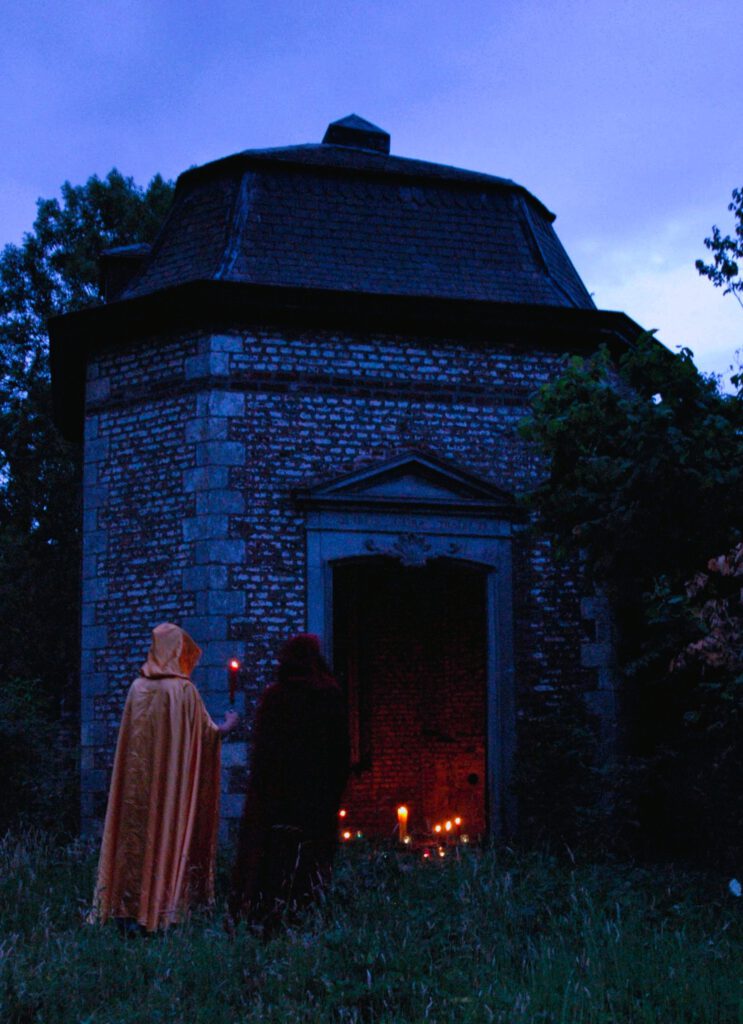
What should a listener feel after experiencing your music—terror, reverence, transcendence?
Nothing has inherent meaning. No thing exists autonomously. What a certain energy does to one, it will not do to another. So there is no preconceived idea of what people should experience whilst listening to Necromantic Worship. A great power lies within the imagination of the individual listener. And when I say imagination I do not mean the ability to pretend, I mean the power to evoke an image and give life to it!
For some, music isn’t anything more than entertainment while for others it is a universe, a gateway to unexplored realms.
If Necromantic Worship were a temple, what would be carved above its entrance?
Enter the temple where shadows are alive and walls remember…

